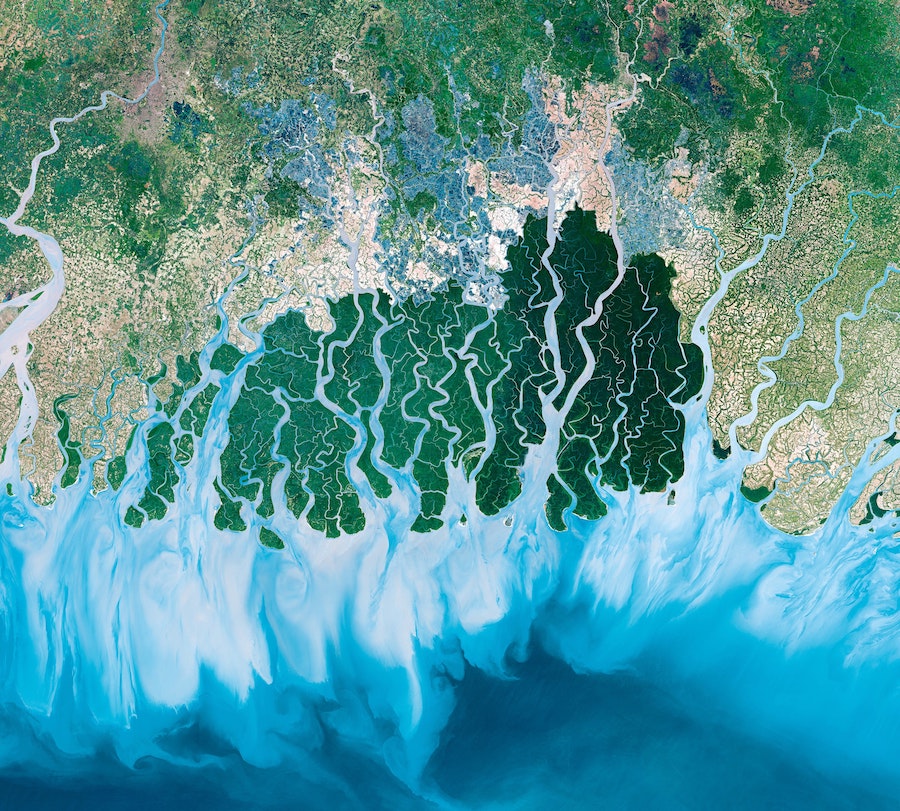A remarkable new TV programme is presenting our planet in a whole new light
Humans have lived on planet Earth for thousands of years, yet there are still hidden corners of the globe that remain untouched, and even familiar locations can look astonishingly different when observed from a new perspective.
Providing us with a bird’s eye view of forests, rivers and mountains, drone footage has revolutionised TV documentary-making in the last few years. Now, the BBC has gone one step – or rather several hundred kilometres -further by producing a new natural history programme based on 300 satellite images taken from space.
Airing on BBC One on Wednesdays at 9pm, four-part series Earth From Space gives an intimate insight into the lives of 35 animal species, accompanied by human stories. Images are so detailed, cameras even managed to capture a wandering albatross nesting on Bird Island in the South Atlantic.
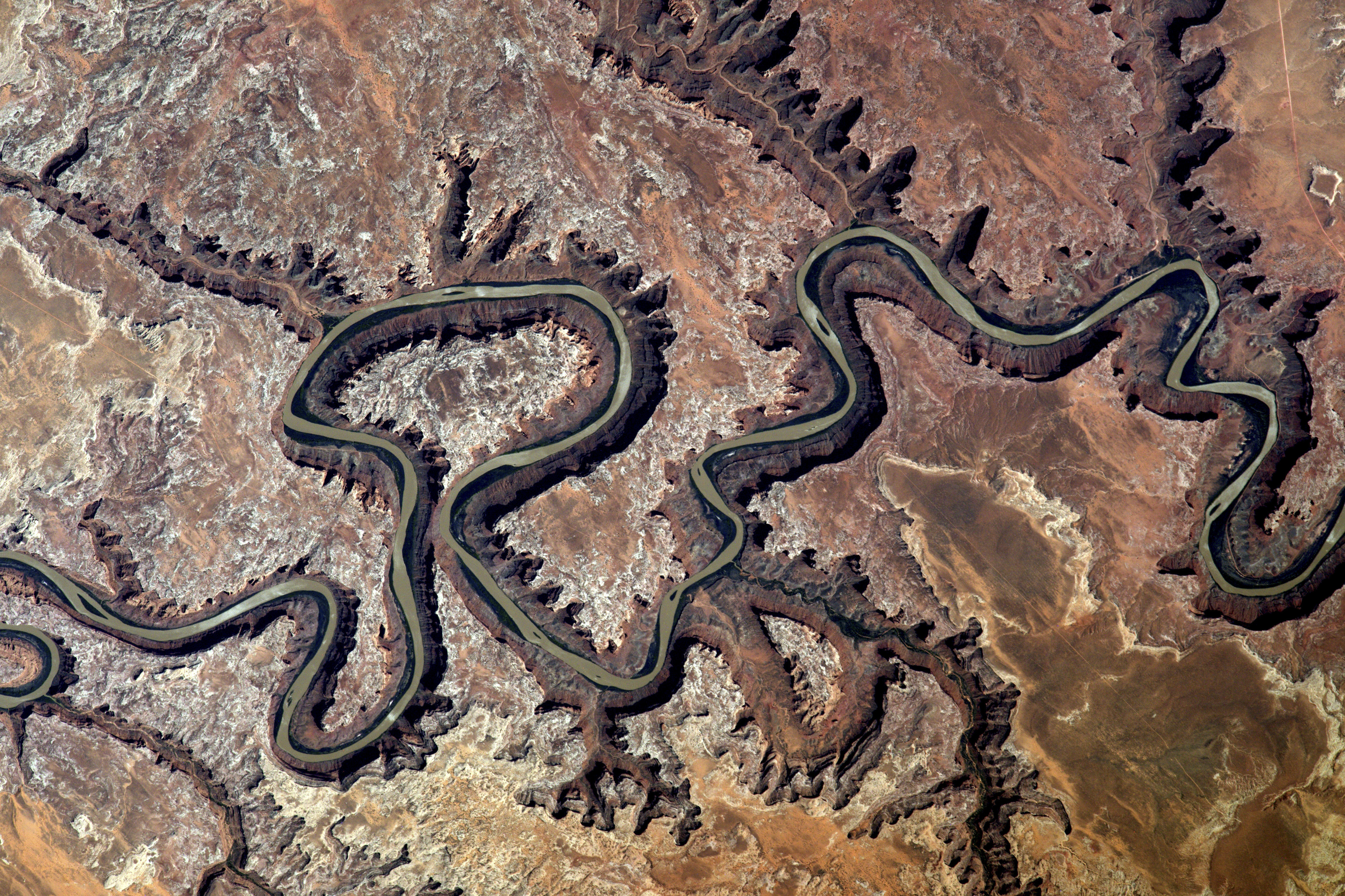
The Green River carves a canyon 300 metres deep as it snakes its way across Utah’s landscape
On screen, phytoplankton blooms transform the ocean into an abstract work of art, Brazilian sand dunes are laced with lagoons during the wet season, and new penguin colonies are determined by the colour of their poo.
“Our mantra from the get-go was: what can satellite imaging add to the natural history genre that feels fresh, revelatory and from a new perspective?” says executive producer Jo Shinner.
Her team was especially interested in the extraordinary patterns created by living creatures, which could only be viewed from a distance: a series of trails coiling through Australia’s Outback created by wombats; clearings in the Congo blasted by mass elephant gatherings; and swathes of blooming rapeseed flowers painting China’s Yunnan province yellow.
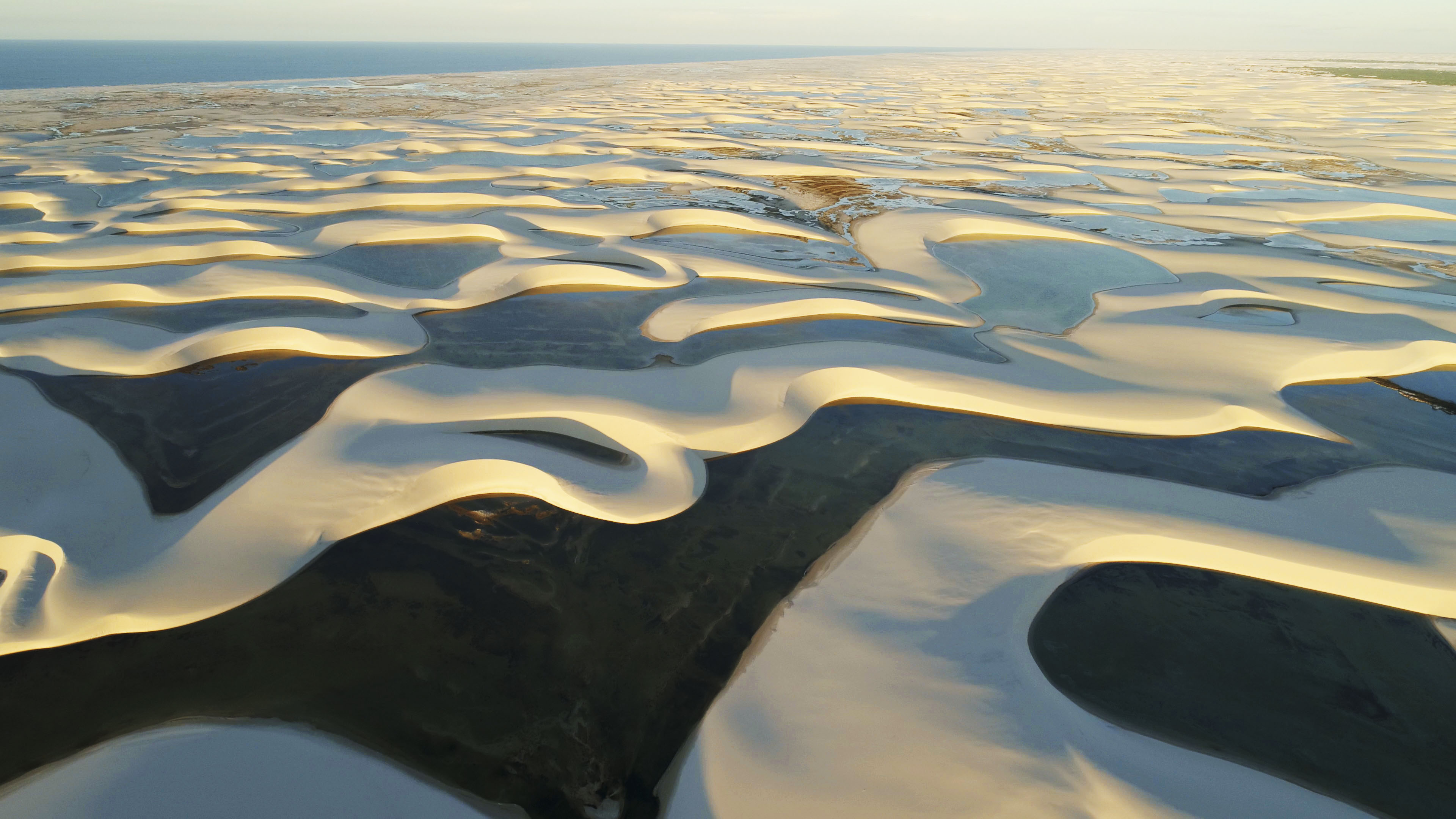
The Lencois Maranhenses National Park, Brazil. These dunes and pools are hunting grounds for the stripey Paninga turtle
“Sometimes you gasp at seeing places you know from a different angle. Other times you simply can’t work out what on earth they could be,” adds Shinner, who loved to play a guessing game of which part of the world an image was representing.
While undoubtedly impressive in isolation, the scenes link together to tell a broader story about our planet.
“It’s only really from space that you can see how tiny, fragile and unique this planet is, and also how everything is connected,” says series director Barny Revill. “You really get a sense of how, like the butterfly effect, something happening in one place can have an impact thousands of miles away.”
This unique perspective allowed the team to understand how animals shape their environment and, in turn, how the environment can dictate the behaviour of animals.
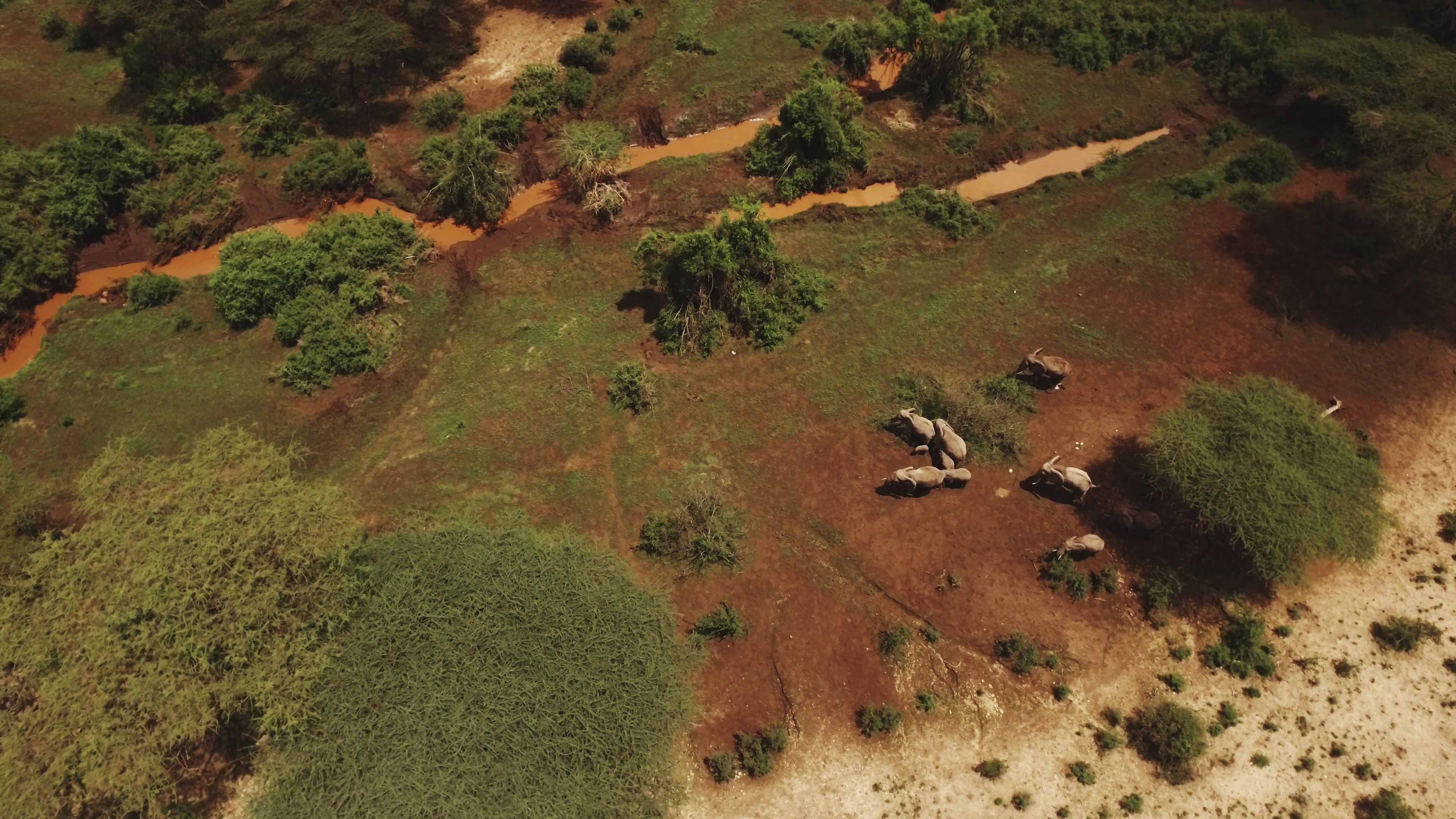
Elephants in Northern Kenya
Such an ambitious project did inevitably present challenges. For example, it took almost a year to secure a shot of an oxbow lake in the Peruvian Amazon, due to the complications of cloud cover.
Streaming satellite images alongside footage filmed simultaneously on the ground also proved to be tricky. While filming in Buffalo Springs National Reserve in Kenya, Revill had to predict where an elephant family might be 48 hours in advance, as that was the amount of time required to get the coordinates up to a satellite which would then film Kenya on its next orbit.
The resulting footage is awe-inspiring, but scenes from the show communicate a chilling message too. Using images captured over several years, time-lapse footage reveals countryside consumed by cities, glaciers rapidly shrinking, and primary forests reduced to empty, flat fields of monoculture.
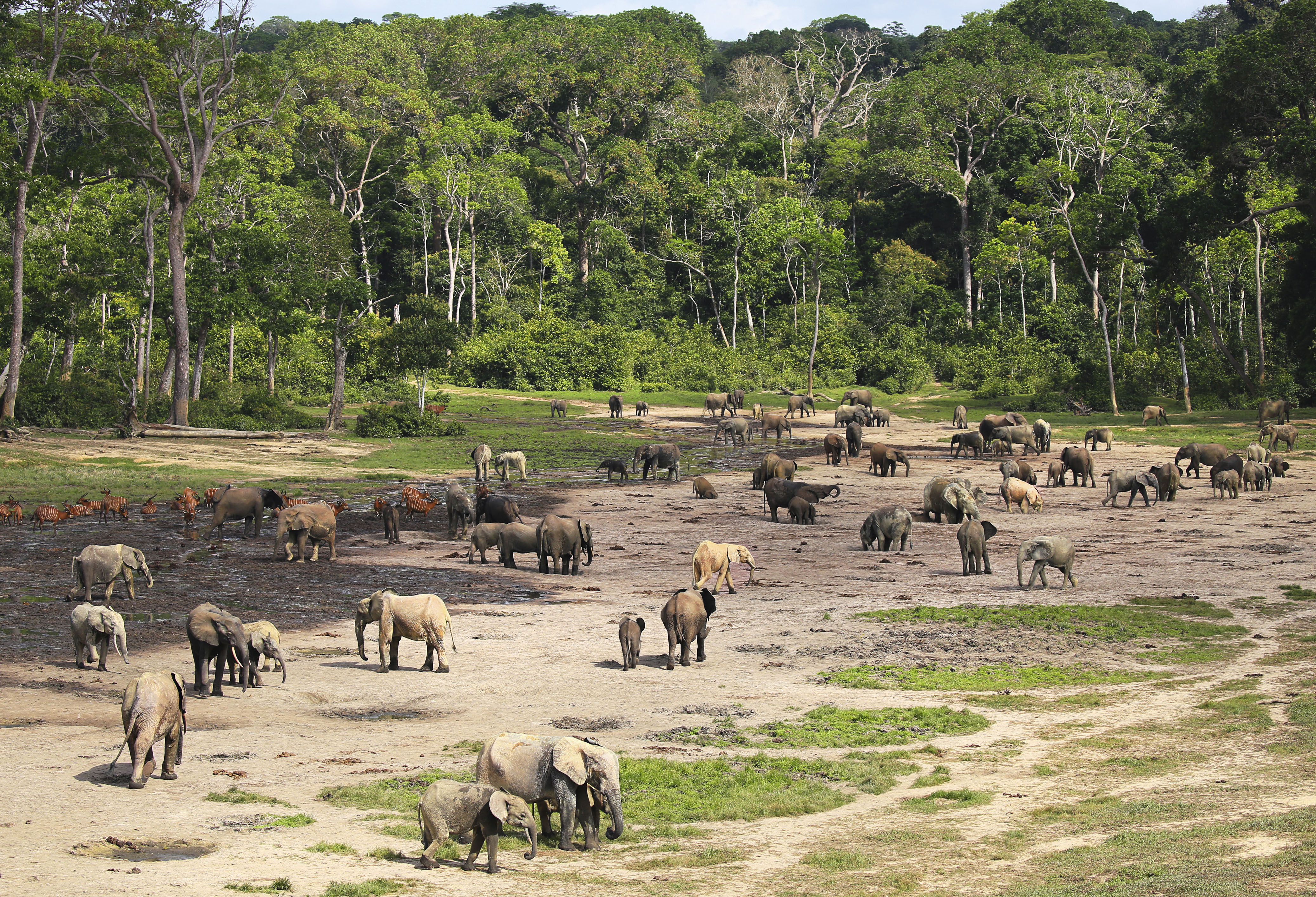
Dozens of Forest Elephants gather at Dzanga Bai in the Central African Republic
“The scale and speed of the loss of pristine forest habitat is truly shocking,” warns series producer Chloe Sarosh. “In Madagascar there are so few trees to hold the island’s red earth together that it’s leeching out into the rivers. From space it looks like the island is bleeding.”
Tackling issues of conservation head-on is part of the BBC’s new approach to “warts and all” programme-making; telling the truth about what’s really happening to our planet. By shocking people into action the team hopes to cultivate greater sensitivity towards our environment.
“Astronauts talk about the “overview effect” and to some degree this series gives the audience that,” says Revill. “It’s a very powerful way to look at the natural world, and hopefully this series will inspire people to love our planet and help conserve it even more.”
Earth From Space starts Wednesday April 17, at 9pm, on BBC One.
The Press Association
Latest posts by The Press Association (see all)
- The best ways to boost your immune system as cold temperatures hit - January 5, 2025
- The Osmonds star and ‘beloved husband and father’ Wayne Osmond dies aged 73 - January 2, 2025
- What screenings are available on the NHS to detect cancer early? - January 2, 2025
- Help your grandchildren make the most of Big Schools’ Birdwatch - January 1, 2025
- Veteran radio star Johnnie Walker dies aged 79 - December 31, 2024








